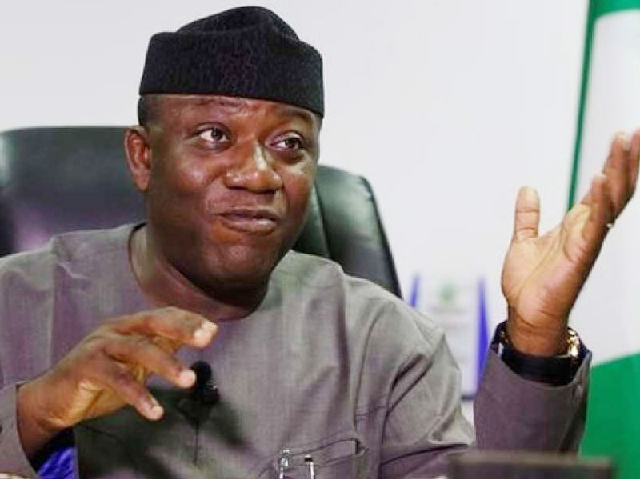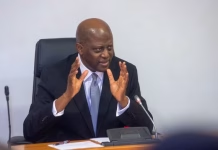Four months after the Minister of Communications and Digital Economy, Dr. Isa Ibrahim Pantami, met with the Nigeria Governors’ Forum (NGF) and resolved to implement the N145 per linear metre Right of Way (RoW) charges, as agreed between the governors and the federal government, 33 states are yet to comply with the pact, THISDAY investigation has revealed.
Ekiti State Governor, Dr. Kayode Fayemi, last week signed an Executive Order reducing RoW charges relating to laying of broadband cable or any other telecoms infrastructure in the state from N4,500 to N145 per linear metre in line with the agreement.
Katsina State had earlier implemented the agreement.
Lagos State had an initial agreement with telecoms operators to reduce RoW charges in the state to N500 per linear metre. The agreement was reached after a court case filed against Lagos State Government by telecoms operators.
Apart from Katsina, Ekiti and Lagos states, the other 33 states are charging exorbitant fees, to raise their Internally Generated Revenue (IGR) at the the detriment of telecoms development, a situation that has continued to worry telecoms operators.
Following the public outcry by telecoms operators over the indiscriminate charges on RoW, which they said impacted negatively on the spread of telecoms infrastructure across states, the federal government, in 2013, had an agreement with telecoms operators to implement a flat rate of N145 per linear metre on RoW charges.
But since 2013, no state implemented it, which prompted Pantami to meet with the governors in January this year, where he reminded them of the benefits of telecoms infrastructure across states.
THISDAY gathered that operators have halted the expansion of telecoms infrastructure in most of the states because of the high rates of RoW charges, coupled with the refusal of state government agencies in granting approval on RoW to telecoms operators.
Some of the state charges include: Plateau State, N1,750; Nasarawa State, N558; Niger State, N1,500; Bauchi State, N1,000; Delta State, N2,705; Imo State, N1,999; Abia State, N3,000; Kwara State, N5,500; Kano State, N2,753; Borno State, N1,650 and Sokoto State, N1,600. Others are: Kebbi State, N444; Gombe State, N1,500. Zamfara State, N1,695; Adamawa State, N1,500; Jigawa State, N1,500; Katsina State, N145; Rivers State, N3,045; Cross River State, N4,561; Akwa-Ibom State, N1,947; Taraba State, N1,600; Osun State, N5,609; Ekiti State, N145 and Anambra State, N3,620.
The spokesperson of the Minister of Communications and Digital Economy, Mrs. Uwa Suleiman, declined to comment on the states’ delay in implementing the agreement and what steps the federal government would take to ensure compliance.
However, Enugu State Commissioner for Works and Infrastructure, Mr. Greg Nnaji, told THISDAY at the weekend that the State Executive Council had approved N3,000 per linear metre for all intending service providers who are ready to apply for issuance of RoW in the state four months ago.
He said since then, the charges had not been revisited since the telecom companies did not complain about the high cost or otherwise of the charges.
“MTN and Airtel have complied with the charges. Initially, we did a comparative costing of other states and came to a value that was acceptable between us and services providers in the state. Since they have complied, it means they are comfortable with the charges and even I am yet to have any complaint, it is yet to come. That is where we are in the state,” he said.
Worried by the high charges, the Chairman of the Association of Licensed Telecoms Operators of Nigeria (ALTON) Mr. Gbenga Adebayo, called on other governors to respect the agreement reached between them and the federal government.
“I expect that other governors will follow the example of Ekiti State Governor, Dr.
Kayode Fayemi, who is also the Chairman of Nigeria Governors’ Forum, who recently crashed RoW charges from N4,500 per linear metre to N145 in the state. Governors should see the benefits of wide spread of telecoms infrastructure in their states, above the gains of Internally Generated Revenue,” Adebayo said.















